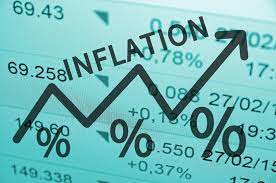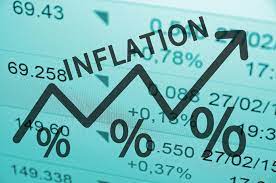
The current spate of inflation would pick up next year and would put increasing pressure on consumer goods companies for increasing prices of products to try and account for the increasing prices for energy and other related expenses, warned Unilever.
While issuing the warning, the company which makes Dove soap and Knorr soup among other global brands, forecast estimate beating sales forecast for the third quarter while also reiterating its profit margin guidance for the full year allying concerns of analysts of a downgrading.
The company however predicted the continuation of inflationary pressures, according to its Finance head Graeme Pitkethly, and added that such pressures could prompt central bankers to raise rates because they are expecting the current spate of inflation to be temporary in nature.
"We expect inflation could be higher next year than this year," Pitkethly said on a media call and added that it was likely that inflation would peak in the first half of 2022.
In the three months ended Sept. 30, a 2.5 per cent growth in underlying sales was reported by the manufacturer of Ben & Jerry's ice cream which was above the 2.2 per cent anticipated by analysts in a company-supplied consensus.
Demand from the United States, India, China, and Turkey aided growth, and a 4.1 per cent rise in prices was able to adequately offset a drop in sale volume of 1.5 per cent.
During the recently ended quarter, more people were encouraged to venture out because of improved vaccination rates in the developed countries which resulted in higher sales of deodorants, skin-cleansing products, and take-away ice cream.
South East Asia accounted for more than two-thirds of the total drop in the volume of sales, as governments enacted strict lockdowns in the region in response to an increase in instances of the Covid-19 infections caused by the delta variant of the coronavirus. That resulted in a slowdown in consumption in the region.
"Relative to low expectations this feels like a 'good enough' quarter to us, with decisive progress on pricing a positive for us in the current climate. But the underlying challenge remains the one of accelerating volume growth," said Jefferies analyst Martin Deboo.
As economies recover from the pandemic hit, consumer products companies are being forced to confront rising prices of raw materials, including those for energy, edible oils, and packaging, as well as greater costs for transportation.
Reflection of increased expenses and disruption to the global supply chain was found in the earnings reports earlier this week by Procter & Gamble Co and Danone SA, as well as phone manufacturer Ericsson, which also indicated further pressure on margins for global corporations and increased prices for consumers.
The rate of inflation has been in the high teens in the consumer products business. However the impact of this on Unilever was minimal because of its strong bargaining power and hedging against price rise, the company said.
Unilever was forced to raise prices during the quarter further after it had raised prices by 1.6 per cent in the previous quarter in its markets including Mexico, the Middle East, and Russia. According to CEO Alan Jope, who was speaking at an investor call, there was little impact of these hikes on sales volumes of the company.
Unilever reiterated its current full-year operating margin target, the company said, because of the increase in prices. The comp[any had in July lowered the estimate from "slightly higher" to "roughly flat".
Some of the critical raw materials where the company experienced price hikes included palm and soybean oil, as well as crude oil derivatives such as resin, Unilever said and added that the prices for ocean freight were 10-15 times more than they were in late 2019.
(Source:www.fxempire.com)
While issuing the warning, the company which makes Dove soap and Knorr soup among other global brands, forecast estimate beating sales forecast for the third quarter while also reiterating its profit margin guidance for the full year allying concerns of analysts of a downgrading.
The company however predicted the continuation of inflationary pressures, according to its Finance head Graeme Pitkethly, and added that such pressures could prompt central bankers to raise rates because they are expecting the current spate of inflation to be temporary in nature.
"We expect inflation could be higher next year than this year," Pitkethly said on a media call and added that it was likely that inflation would peak in the first half of 2022.
In the three months ended Sept. 30, a 2.5 per cent growth in underlying sales was reported by the manufacturer of Ben & Jerry's ice cream which was above the 2.2 per cent anticipated by analysts in a company-supplied consensus.
Demand from the United States, India, China, and Turkey aided growth, and a 4.1 per cent rise in prices was able to adequately offset a drop in sale volume of 1.5 per cent.
During the recently ended quarter, more people were encouraged to venture out because of improved vaccination rates in the developed countries which resulted in higher sales of deodorants, skin-cleansing products, and take-away ice cream.
South East Asia accounted for more than two-thirds of the total drop in the volume of sales, as governments enacted strict lockdowns in the region in response to an increase in instances of the Covid-19 infections caused by the delta variant of the coronavirus. That resulted in a slowdown in consumption in the region.
"Relative to low expectations this feels like a 'good enough' quarter to us, with decisive progress on pricing a positive for us in the current climate. But the underlying challenge remains the one of accelerating volume growth," said Jefferies analyst Martin Deboo.
As economies recover from the pandemic hit, consumer products companies are being forced to confront rising prices of raw materials, including those for energy, edible oils, and packaging, as well as greater costs for transportation.
Reflection of increased expenses and disruption to the global supply chain was found in the earnings reports earlier this week by Procter & Gamble Co and Danone SA, as well as phone manufacturer Ericsson, which also indicated further pressure on margins for global corporations and increased prices for consumers.
The rate of inflation has been in the high teens in the consumer products business. However the impact of this on Unilever was minimal because of its strong bargaining power and hedging against price rise, the company said.
Unilever was forced to raise prices during the quarter further after it had raised prices by 1.6 per cent in the previous quarter in its markets including Mexico, the Middle East, and Russia. According to CEO Alan Jope, who was speaking at an investor call, there was little impact of these hikes on sales volumes of the company.
Unilever reiterated its current full-year operating margin target, the company said, because of the increase in prices. The comp[any had in July lowered the estimate from "slightly higher" to "roughly flat".
Some of the critical raw materials where the company experienced price hikes included palm and soybean oil, as well as crude oil derivatives such as resin, Unilever said and added that the prices for ocean freight were 10-15 times more than they were in late 2019.
(Source:www.fxempire.com)





